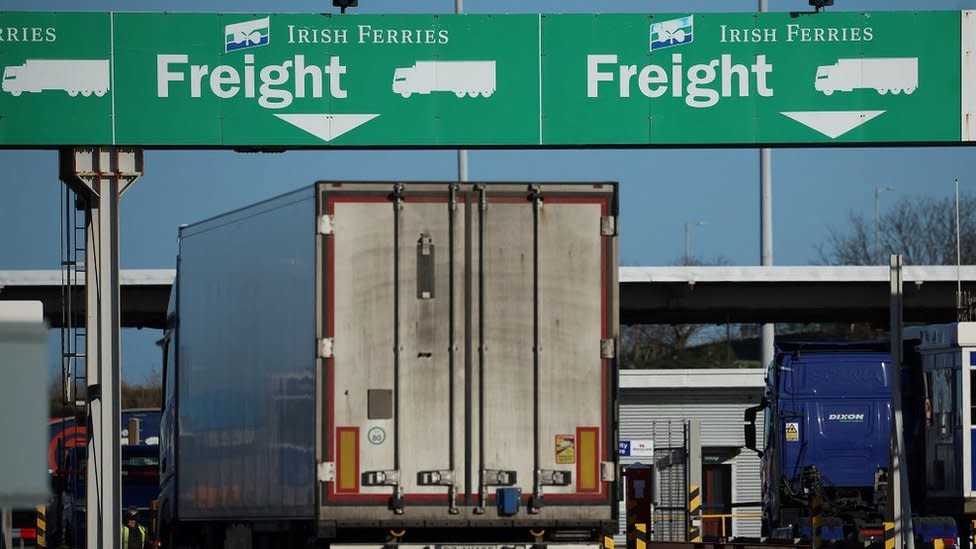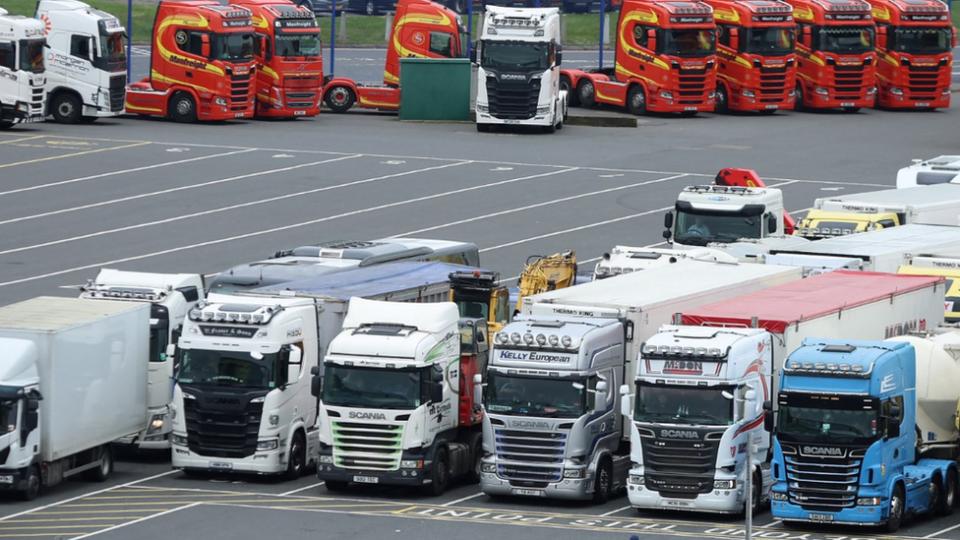Brexit: Date for new checks on Irish agri-food products still unclear

It is still uncertain when Irish agri-food products being shipped to Great Britain will face new post-Brexit checks.
From Tuesday, agri-food products from the rest of the European Union (EU) will be subject to the checks.
The UK government has said checks on Irish products will not start until November at the earliest.
The Welsh government said it is likely to be the first half of 2025 before facilities are ready.
The Republic of Ireland is a major exporter of food to Great Britain, with Welsh ports acting as a major gateway for those products.
Earlier this year, the Welsh government said there were still issues to resolved between the UK and Welsh governments in regard to the checks.
Another complicating factor is the need to ensure that checks on Irish goods do not interfere with the "unfettered access" of Northern Ireland goods going to Great Britain.
When the UK left the EU in 2021, goods from Great Britain going to the EU were immediately subject to the customs and regulatory processes applied to any non-member state.
However, the UK government was not ready to apply controls on EU goods and the introduction of those controls was delayed on five occasions in the subsequent three years.
The checks are now being phased in.

In January, there was the introduction of customs processes and official certification of some food products.
Irish goods were subject to those changes.
Goods from Northern Ireland going directly to Great Britain do not face any checks or controls as the UK government has guaranteed they will have "unfettered access".
In January, the UK government also confirmed it would not build a border control post at Cairnryan.
The Scottish port is the main access point for Northern Ireland goods entering Great Britain.
A border control post had been planned in order to check Republic of Ireland goods being sent to Scotland via NI ports.
That was politically controversial, as it raised the prospect of NI goods also being caught up in the checks.

